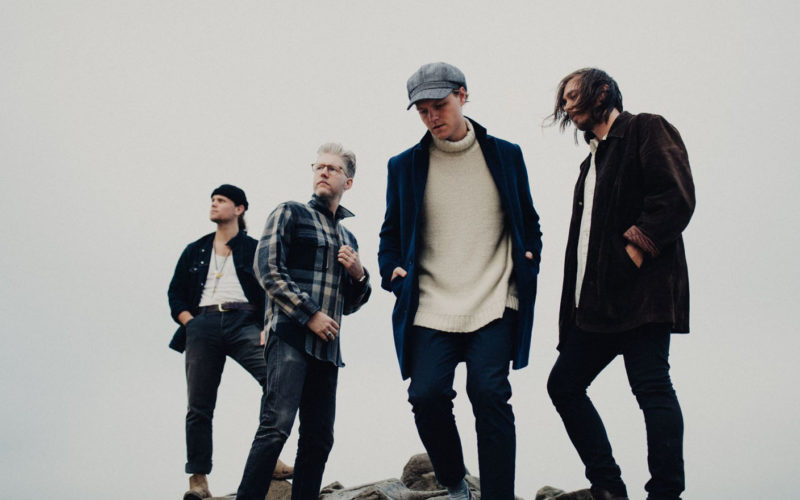It was as simple as this: The Chapman brothers, Caleb on guitar and vocals and Will on drums, grew up playing music together in Franklin, Tenn., and, they agree, “it never really felt like there was an alternative.” But, they add, “the most important thing for us has always been our family and friendships,” so they had to find just the right fit when it came to bringing other musicians into their circle.
Down the road in Knoxville, Scott Mills and Parke Avery Cottrell “had a mutual best friend their whole lives but never met each other.” Finally, a Chapman cousin, Canan, introduced Mills to Caleb and Will and “shamelessly plugged him as a great guitar player.”
It so happened the Chapmans needed a guitar player, they remember, so they texted Scott to come “JAM” — “and we’ve been jamming ever since.”
“Where Parke enters the picture is, we needed someone to open a show in Knoxville once, and Scott knew of Parke and thought he could be a cool fit,” the brothers continue the story. “Obviously, it was, and we all became friends. Then a few years later we needed someone to fill in on bass for a couple weeks of tour. We knew Parke was good at everything, so we figured we’d ask him. He borrowed some bass gear from friends and came out and crushed it from the get-go. … The rest is history.”
The rest is Colony House, described by critics as “buoyant and anthemic” and “pretty much close to alt rock perfection.” “It’s one of the rare acts,” one critic writes, “for which the music might really be enough.”
In advance of their performance Feb. 23 at George’s Majestic Lounge, the members of Colony House answered these questions for What’s Up!
Q. What single musician influenced you most growing up?
Caleb: Would have to be my dad [Steven Curtis Chapman] for obvious reasons. He’s an amazing guitar player and an amazing songwriter. I had front row seats to a master class in musicianship and songwriting my whole life.
Q. How do we see that reflected in Colony House’s music?
Will: It’s a part of everything we do! That a song has so much purpose and can affect and help someone more than we know. Love what you do, but don’t take yourself too seriously.
Q. How do you define “alternative” music?
Cottrell: It’s the dark horse genre. It’s track 7; I always thought bands’ seventh track on an album usually was their most experimental. It’s a moving target. It’s exciting. It’s unique.
Q. Tell me what resonates for you about your new album, “Leave What’s Lost Behind,” released in January?
Mills: These songs are a story. Actual poetry. They can all stand alone but are intentionally woven together as a body. Not just songs with a handful of lyrics about climbing mountains or breakups or songs about relationships, but songs that you can find yourself in. Songs you can climb inside of and make your own. Accessible, but personal. Timeless and speaking to the times. We’ve always thought of our music like a conversation. I think this album embodies that motive.
Q. Why should people get off the couch and come hear you play?
Caleb: Because otherwise you’ll just be sitting on your couch. (Dad joke!)
Will: Because we are a really good live band.
Cottrell: Because our live show is a lot more fun than your most comfortable couch.
Mills: Because Colony House shows clear your skin, fix your credit, and introduce you to a thousand or so of your new best friends.
BECCA MARTIN-BROWN
bmartin@nwadg.com
__
FAQ
Colony House:
Leave What’s Lost Behind Tour
WHEN — 8:30 p.m. Feb. 23
WHERE — George’s Majestic Lounge in Fayetteville
COST — $18-$20
INFO — georgesmajesticlounge.com; colonyhousemusic.com



